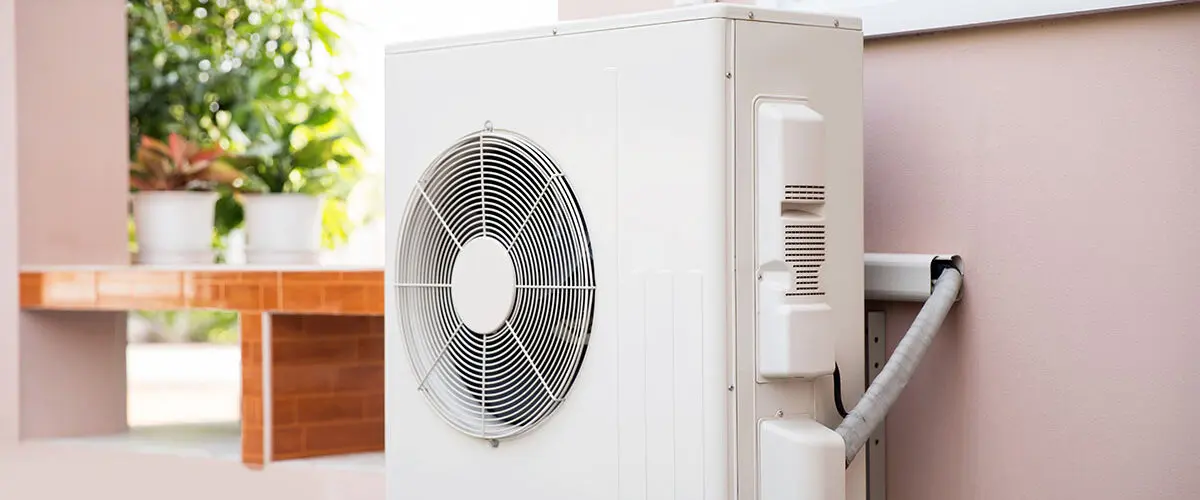A Heat Pump Might Be Right for Your Home. Here’s Everything to Know.
Heat pumps are good for your wallet—and the world.
They’re the cheapest and most efficient way to handle both heating and cooling for your home, no matter where you live. They’re also better for the environment. In fact, most experts agree they’re one of the best ways for homeowners to reduce their carbon footprint and reap the benefits of a greener future without sacrificing comfort. In other words, they’re a win-win.“We’ve come to see climate solutions like paper straws as being something worse than what we’re used to. But there are some places where everyone benefits, and I think heat pumps are a good example of that,” said Alexander Gard-Murray, PhD, a political economist at Brown University and co-author of 3H Hybrid Heat Homes: An Incentive Program to Electrify Space Heating and Reduce Energy Bills in American Homes. “They’re quieter. They offer more control. And at the same time, they’re going to reduce our energy demand and our greenhouse gas emissions. So it’s not just savings. It’s a quality-of-life improvement.”
But it can still feel daunting to pick the heat pump that’s right for you, or even to know where to start looking. We can help.
What is a heat pump, anyway?
“A heat pump is probably the biggest thing that consumers can do to help fight the climate crisis,” said Amy Boyd, director of policy for the Acadia Center, a regional research and advocacy organization focusing on clean-energy policy in the Northeast. Heat pumps also happen to rank among the quietest and most comfortable options available for home heating and cooling.
Heat pumps are essentially two-way air conditioners. In the summertime, they work like any other AC unit, removing heat from the air inside and pushing cooled air back into the room. In the cooler months, they do the opposite, drawing heat energy from the air outside and moving it into your home to warm things up. The process is especially efficient, using half as much energy on average than other electric home-heating sources. Or, as David Yuill of the University of Nebraska–Lincoln told us, “You put in a watt of electricity and get four watts out of it. It’s like magic.”
Unlike magic, however, there’s actually a very simple explanation for this result: Heat pumps have only to move heat, instead of generating it by combusting a fuel source. Even the most efficient gas-powered furnace or boiler never converts 100% of its fuel into heat; it’s always going to lose something in the conversion process. A good electric-resistance heater gives you 100% efficiency, but it still has to burn watts to produce that heat, whereas a heat pump just moves the heat. A heat pump can save you, on average, nearly $1,000 (6,200 kWh) a year compared with oil heat, or about $500 (3,000 kWh) compared with electrical heating, according to the US Department of Energy.
In states where the energy grid is increasingly reliant on renewables, electric heat pumps also emit less carbon than other heating and cooling options, all while providing two to five times more heating energy than the energy you put into it, on average. As a result, a heat pump is an environmentally friendly HVAC system that’s good for your wallet, as well. Most heat pumps also use inverter technology, which lets the compressor run at more nuanced and variable speeds, so you’re using only the exact amount of energy necessary to maintain comfort.
Who is this for?
Almost any homeowner could potentially benefit from a heat pump. Consider the case of Mike Ritter, who moved into a 100-year-old two-family home in Boston’s Dorchester neighborhood with his family in 2016. Ritter knew the boiler was running on fumes even before he bought the house, and he knew they’d have to replace it soon enough. After getting a few quotes from contractors, he was left with two options: He could spend $6,000 to install a new fossil-fuel-based gas tank in the basement, or he could get a heat pump. Although the overall cost of the heat pump looked to be about five times higher on paper, the heat pump also came with a $6,000 rebate and a seven-year, zero-interest loan to cover the rest of the cost, thanks to Massachusetts’s statewide incentive program to encourage heat pump conversion.
Once he did the math—comparing the soaring costs of natural gas with those of electricity, as well as factoring in the environmental impact, alongside the monthly payments—the choice was clear.
“Honestly, we were shocked that we could do it,” said Ritter, a freelance photographer, after four years of heat pump ownership. “We don’t make doctor or lawyer money, and we wouldn’t have expected to be the kind of people with central heating and cooling in their house. But there’s a million ways you can spread out the costs and get rebates and get energy credits. It’s not much more than what you’re already spending on energy right now.”
Despite all the benefits, there are nearly twice as many Americans buying one-way ACs or other inefficient systems than there are buying heat pumps each year, according to Alexander Gard-Murray’s research. After all, when your old system fails, it’s logical to simply replace what was there before, as the Ritters might have. We hope this guide can help you plan and budget for a true upgrade. Otherwise, you’ll be stuck with another inefficient, carbon-intensive HVAC for the next decade. And that’s not good for anyone.
For more information visit Wirecutter to read the full guide.



















